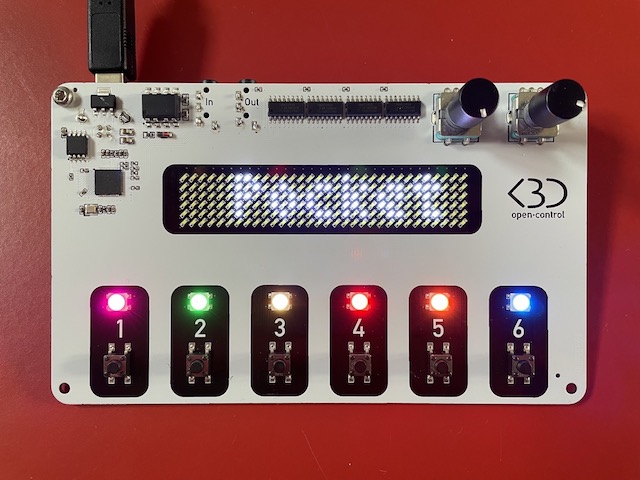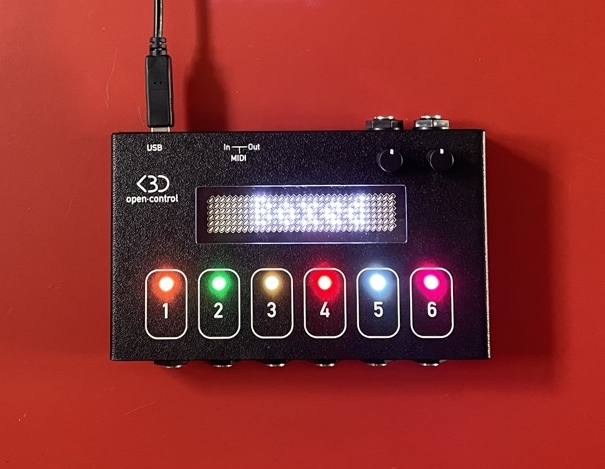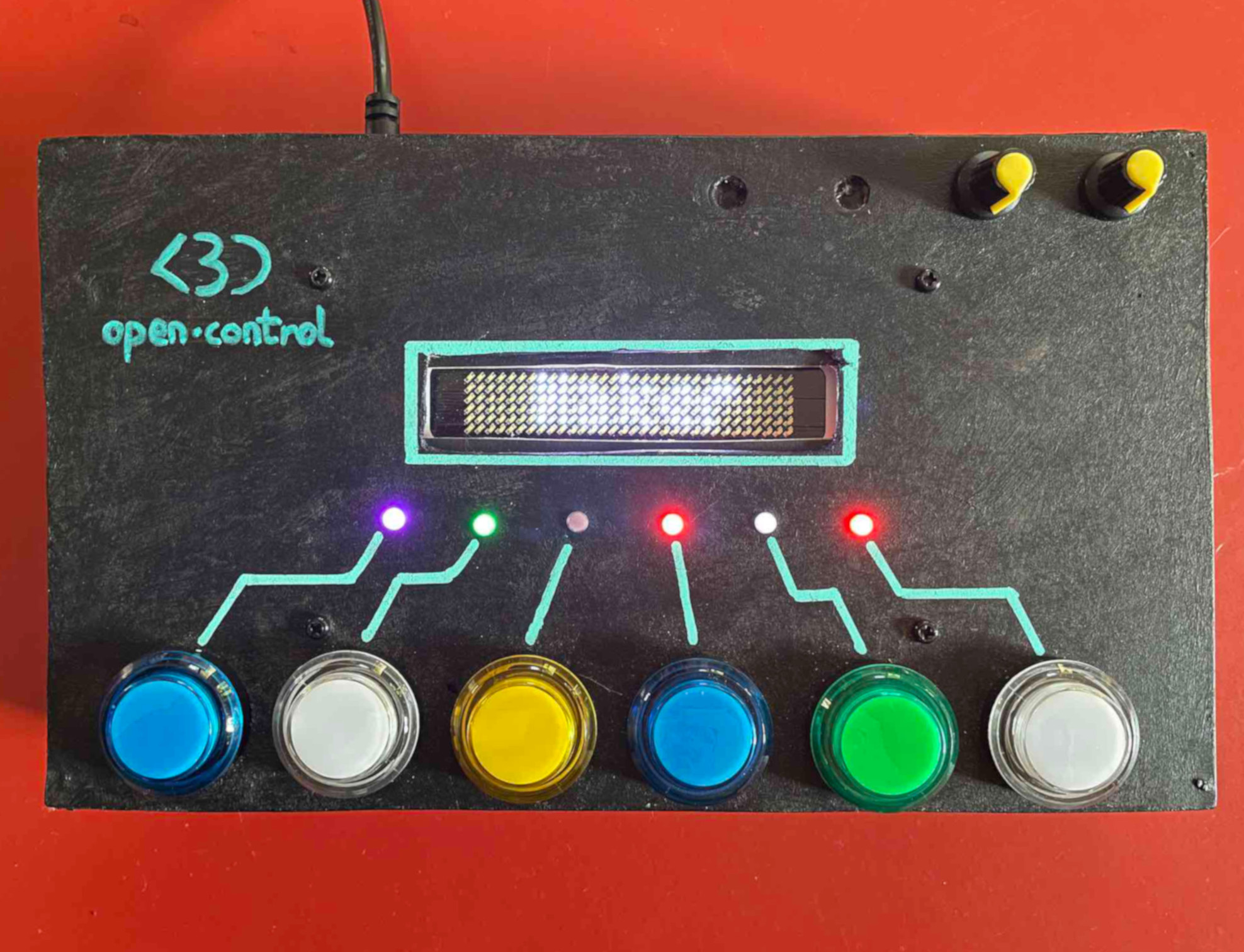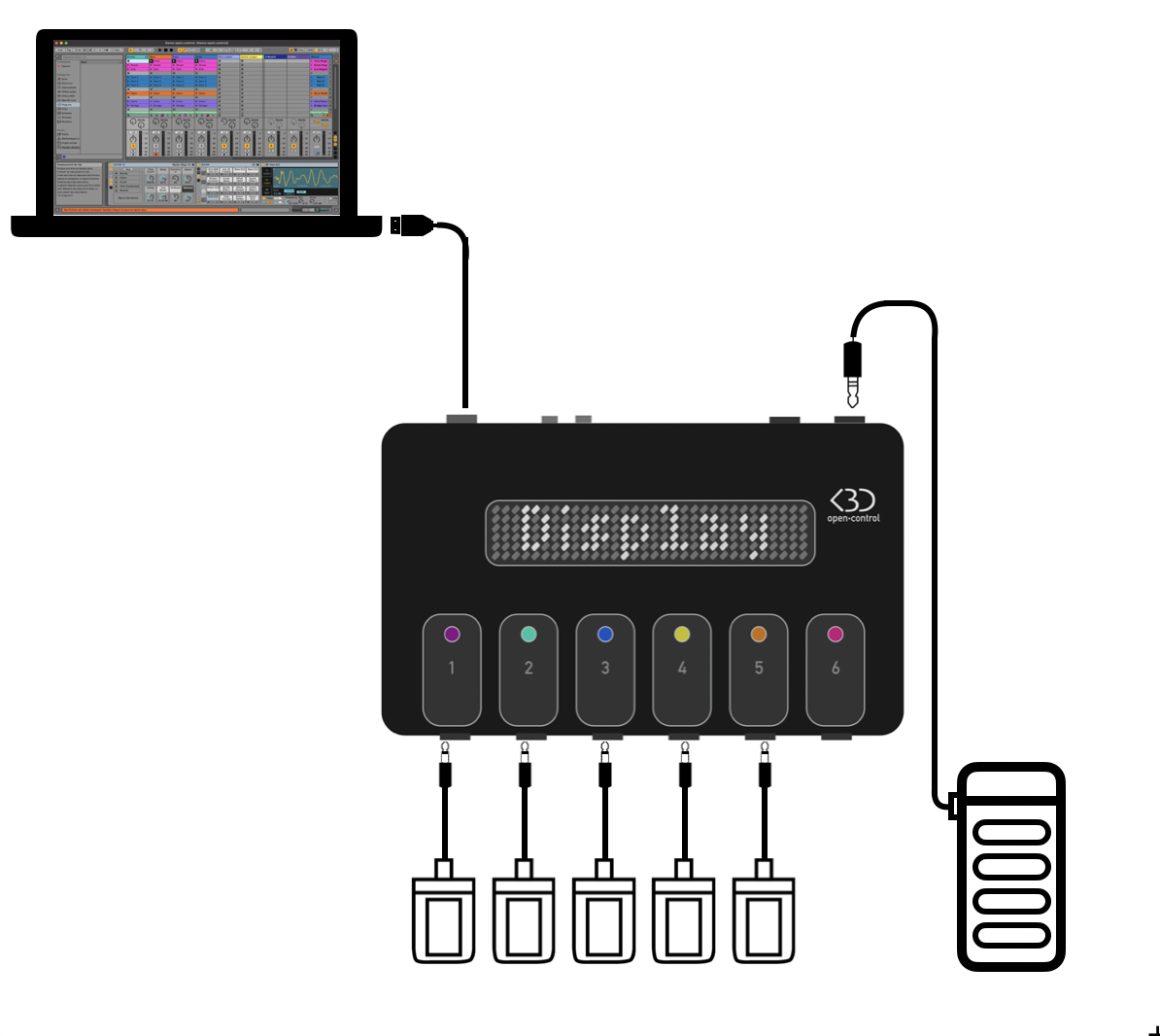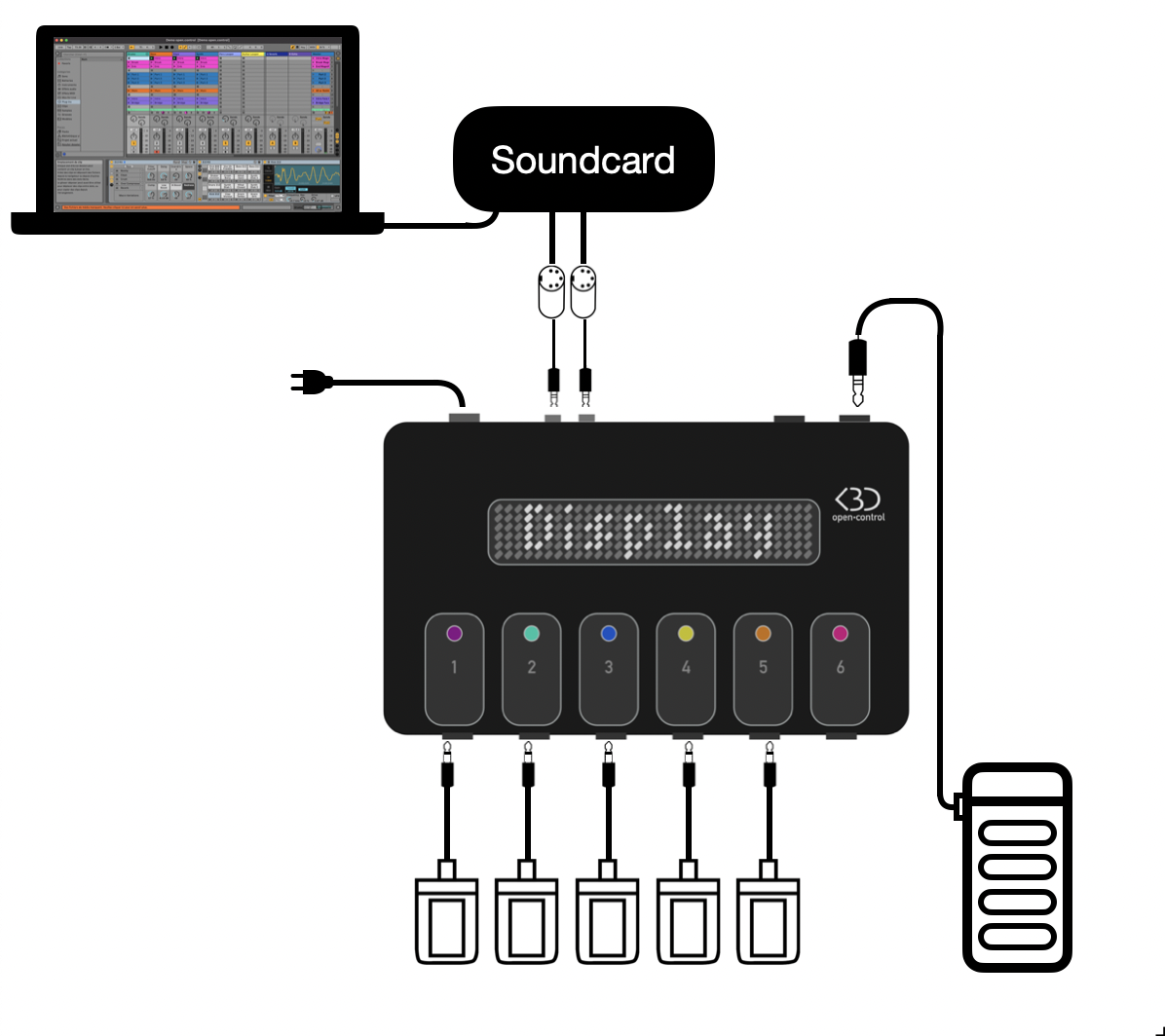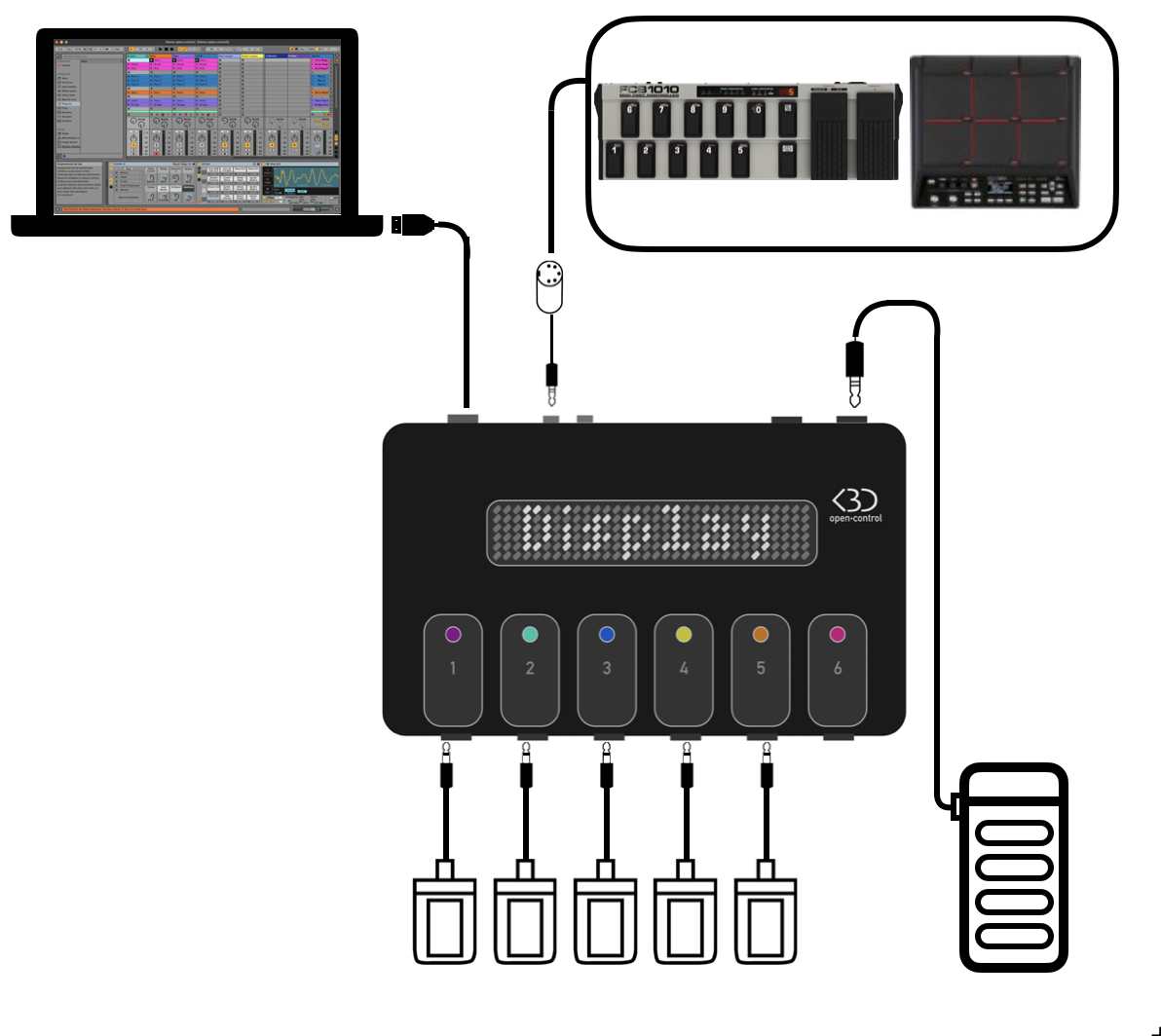open·control is a customizable MIDI controller with a large and bright display, 6 buttons with visual feedback and 2 knobs.
It is available in 3 formats, to use it with pedals, fingers, or to make your own.
1 controller, 3 flavors
open·control is available in 3 formats.
Pocket is a lightweight desktop controler, Boxed is designed to be used with pedals, and Maker is for the hobbyist who wants to create his own enclosure.
Sorry, we're out of stock at the moment ! :-(
Desktop version
· LED Matrix Display
· 6 Buttons with visual feedback
· 2 Endless Knobs with Push Button
· MIDI In/Out
· USB
· Optional 3D-printed Cover
Boxed
Use pedals instead of buttons
· LED Matrix Display
· 6 Jack inputs for Switch Pedals w/ visual feedback
· 2 Jack Inputs for Expression Pedals
· 2 Endless Knobs with Push Button
· MIDI In/Out
· USB
· Robust plastic enclosure
Maker
Create your own enclosure
· PCB Board + Components
· 6 Slots to solder Switches w/ visual feedback
· 2 Slots to solder Endless Encoders with Push Button
· 2 Slots to solder variable Resistors
· MIDI In/Out
· USB
Control the controls
Each element of the controller can be changed instantly with an easy to use Web Editor (also available offline).
You can create up to 3 different pages of controls.
No need to reload Live or refresh anything, all changes are applied immediately.
open·control is the only controller available that shows and controls Variations, Scene names, Looper state... amongst many other unique features.
Of course you can use the buttons to do "classic" MIDI mapping.
You can find a list of available actions and some examples on the Ressources page.
open·control being Open Source, you can adapt the code to your own needs.
Setlists
Optimize your live performance with Setlists
You can create setlists by adding (SONG#) to a Scene or Arrangement Marker name
You will then be able to go to the next or previous song, and launch the selected song instantly.

Your setlist can be as long as you want.
You can easily re-organize your Setlist by updating the (SONG#) tags.
More details
Looper integration
open·control takes extra care of Live's Looper device
open·control detects any Looper that has (LOOPER#) in its name. You can then navigate through Loopers and control and monitor the state of each Looper individually.
Another useful feature is that you can monitor the state of 6 Loopers simultaneously.
More details

Custom Actions
When 1 action is not enough
If you need to perform more than 1 action when pressing a button, you can create list of actions with "Custom Actions". These actions are created in a special text file, or by renaming Clips inside Live.
The syntax is similar to ClyphX, so you can instantly turn existing ClyphX actions into buttons press. This also means that more actions are available.

3 MIDI modes
open·control has MIDI In and Out ports (stereo 3.5mm minijack), making it possible to connect it in 3 different ways.
This is available on all the versions (Pocket, Boxed or Maker).
Standard USB
Simply connect open·control to your computer using a standard USB cable.
Remote Control
For longer distance, you can use the MIDI In and Out ports.
The power will be supllied by the USB port.
External MIDI
Use your own equipment to control open·control.
Just plug your gear to the MIDI In port, set the controls on the editor and your gear will trigger the corresponding buttons.
Any MIDI hardware that sends Notes or Control Changes can be used (for instance FCB1010, SPD-SX...).
Specifications
Connectors:
Dimensions:
 To help make the planet a bit greener , no cables are provided with open.control.
To help make the planet a bit greener , no cables are provided with open.control.
The USB cable is very standard (Printer type), you probably have one you don't use.
FAQ
No, there's no need to have Max For Live
The main idea behind open·control was to use it on stage and to be able to read it from a certain distance and from any angle. Therefore the best solution was a LED matrix.
Any version above Live 9 will work (Lite, Standard, Suite).
